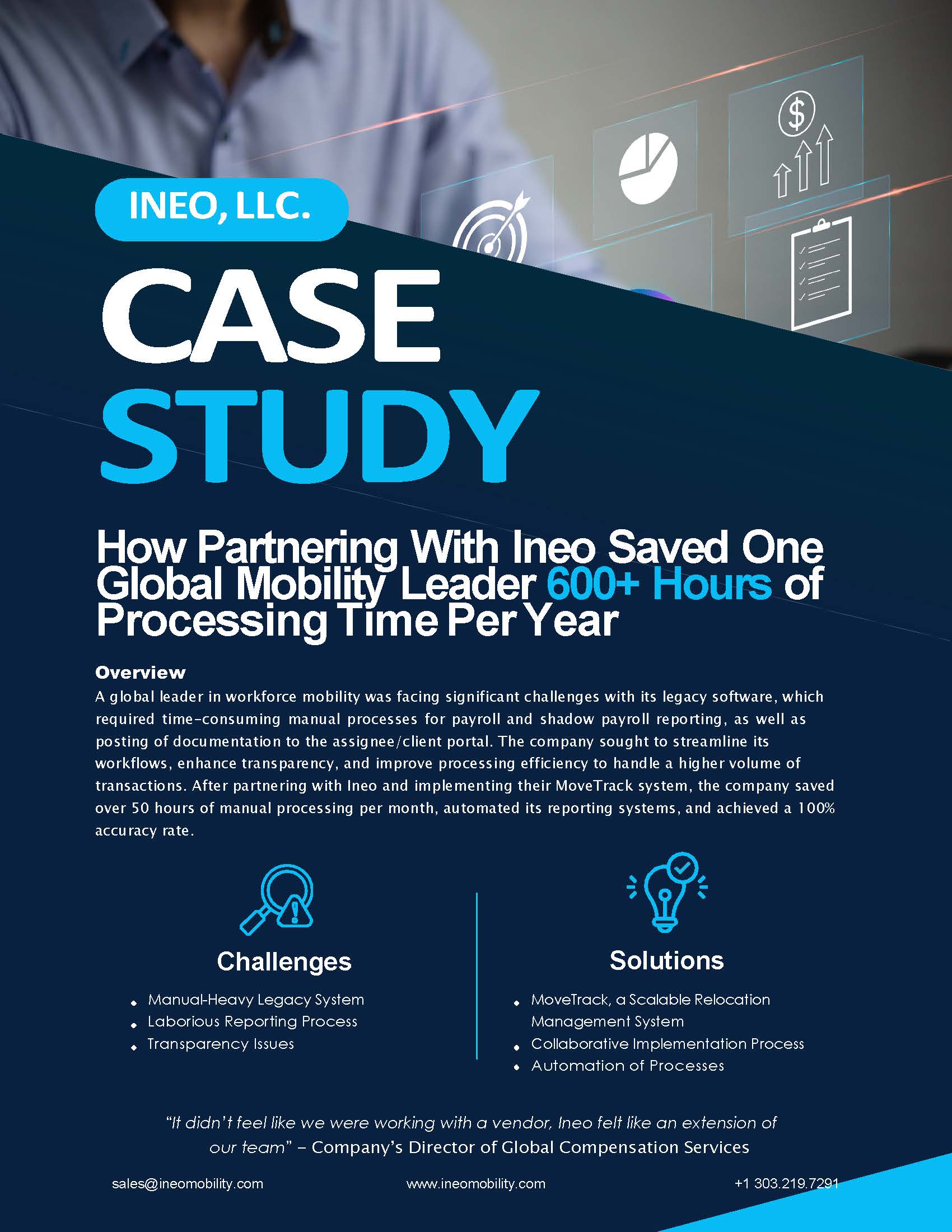Repatriation Policy Best Practices for Surefire ROI

Approaching the repatriation process with empathy and understanding to maximize your investment.
Repatriation may be one of the final steps in completing a relocation assignment but is nonetheless vital in the global mobility process. Despite its importance in key talent retention and achieving a positive ROI, mobility professionals often neglect repatriation best practices when developing repatriation policies.
Too often, assignees returning to their home country endure the consequences of a mobility program’s lack of repatriation support. The disregard for the repatriation experience leads to higher employee attrition rates and a considerable financial and resource investment loss.
Fortunately, improving the repatriation experience and securing your investment is as simple as developing compassionate repatriation policies or reexamining existing repatriation policies. To help you in this endeavor, we’ve compiled the best approaches for designing repatriation policies to ensure your company reaps the maximum return on investment made in international assignments.
Standard benefits included in repatriation policies
Repatriation policies generally include benefits similar to those provided to the employee during their expatriation abroad. While benefits vary based on company policy and assignment length, long-term relocation benefits commonly consist of the following:
- Temporary housing accommodations
- Travel assistance
- Surface shipment costs of household goods
- Repatriation stipend
Employee challenges during repatriation
While repatriating an employee after an international assignment may seem straightforward, this isn’t always the case. The employee may find returning home or transitioning into a new home location-based role more complicated than expected, as an assignee’s experiences while abroad have undoubtedly impacted who they are as individuals and professionals.
In some ways, moving back may be just as challenging as relocating abroad due to the disturbance in familiarity and comfort that grows with time. While employers may perceive that assignees are returning home with expanded knowledge and experience to benefit the company, employees may feel reverse culture shock that disrupts their lives and work performance. Reverse culture shock is particularly common for assignees and their families repatriating to a different city in their home country than the location they initially departed.
To provide a less stressful transition, consider adding additional repatriation support such as home-finding trips and orientation. If the employee has raised young children during long-term assignments abroad, tutoring and language education can also help relieve reverse culture shock and ease repatriation-related stress.
Increasing repatriation ROI through empathic and forward-thinking policies
During the first year of returning home, attrition rates remain high with the potential loss of investment spent on overall assignment costs and repatriation expenses for employees. If an assignee doesn’t feel appropriately accommodated and validated after repatriation, you jeopardize their job satisfaction and may lose them to your competitors. Without the proper repatriation planning, an unhappy employee is more likely to resign upon returning home, resulting in a loss of ROI for your organization.
Developing your mobility policies and repatriation processes will help you build, reward, and retain valuable employee talent. The most promising way to produce positive results and secure a satisfactory ROI from relocation assignments is to take the extra step in improving repatriation policies.
A repatriation integration program should maximize the knowledge and skills a repatriating employee has cultivated during their assignment. A successful repatriation program coaches assignees in designing actionable plans for reintegrating and acclimating to their home country. Creating a plan enables them to assess the experiences and skills they attained while abroad and establish future professional objectives. An empathetic and well-considered repatriation program is a minimal investment that can produce significant returns on assignment success rates.
Best practice tips for employee repatriation experience
To effectively impact high employee retention and ROI, repatriation policies should account for common concerns faced by assignees and their families. To maximize the likelihood of a positive repatriation experience, we recommend incorporating the following suggestions when creating your repatriation policies:
- Begin repatriation discussions at least six months before repatriation to give an employee ample time to prepare.
- Discuss career goals and business objectives with the employee before relocation and revisit the discussion periodically throughout their assignment term.
- Utilize mobility assignment management software during the lifecycle of an assignment to maintain organized and accurate data.
- Take steps before, during, and after the global relocation to reinforce ties to the company.
- Establish mentors, preferably repatriated employees, in the home country during the relocation assignment to help provide support and guidance.
- Provide training to best aid an employee in transferring the knowledge and skills acquired abroad to the next step in the career.
- Foster networking, business, and HR conversations on short trips home during the assignment.
- Assist the assignee and their family in locating housing, spousal career aid, and children’s educational arrangements in the home country.
- Discuss with assignee the anticipated tasks, “hidden” costs, and task due dates required for repatriation (e.g., loss of children’s education tuition, local lease breakage fees and due date requirements, loss on sale of car). The additional expenses were probably not included in any initial Cost Estimate.
Global Mobility Software
The entire global relocation assignment process, including employee repatriation, requires your mobility program to maintain a wealth of accurate information. Luckily, Ineo’s TechSuite total assignment management software is ideal for managing your complete assignment data. We offer global mobility software with comprehensive lifecycle assignment management, including repatriation and beyond.
Ready to discover how Ineo’s TechSuite software solutions can benefit your mobility program? Contact our industry experts today!
Global Mobility Resources
Learn more about what’s going on at Ineo and insights into the complex world of global mobility from the industry’s top thought leaders and innovators.
Request A Demo
Whether you are new to the world of global mobility or you’ve been in the business for a while, Ineo is here to assist you.
The best way to learn how Ineo’s global mobility software can help your company revolutionize your global mobility program and support your business strategy is to see it in a demo.
Fill out this form to get started today.
Get Started






